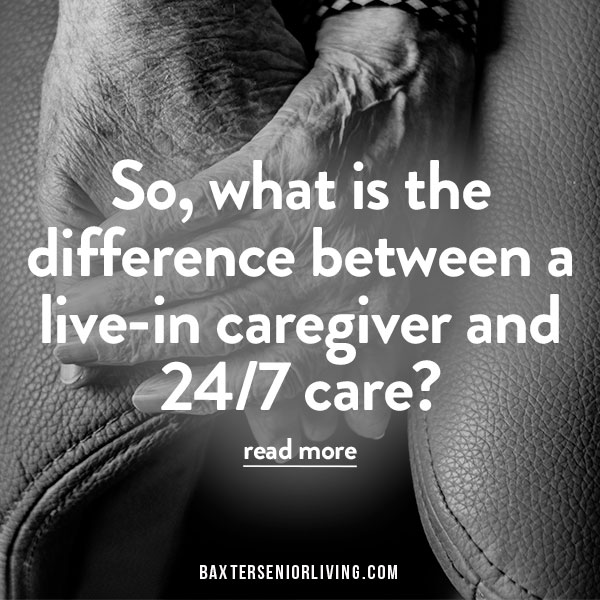When most people think about caregiving, they think about people who come into a home for a few hours a day to help out. They may help to make sure that their patients are getting the correct medication. They may help to take them to the grocery store, and make some meals for them. They may just provide some extra companionship for those who are feeling a little lonely.
However, there are also those who need even more help. For this reason, your family may need to look into a live-in caregiver or 24/7 care. Though they may seem similar, there are many differences between them.
So, what is the difference between a live-in caregiver and 24/7 care?
Live-in Care
- When you choose a live-in caregiver, you are choosing to have only two or three people taking care of your loved one. A caregiver will work twenty-four-hour shifts, several days a week. You will need to hire another caregiver or two for the additional days of the week.
- During a twenty-four-hour shift, your caregiver will need a four-hour break, which you can cover yourself or hire someone else to come in for those few hours.
- The caregiver will also be allowed to sleep for a full eight hours during each shift. You must provide a bed for them to sleep.
- Live-in care is nice because your loved one will only have two or three caregivers at a time. This provides consistency for those that really need that.
- Live-in caregivers are paid by the day. This is a flat rate.
- The main concern about live-in care is that the caregivers are not to be disturbed when they are sleeping, leaving your loved one alone for eight hours at a time.
- Others also see the four-hour break as an inconvenience because someone has to be able to cover that, or there will be an extra charge to have a caregiver come in during that time.
24/7 care
- When you choose 24/7 care, you don’t have to worry about breaks. Your caregivers will work around the clock to care for your loved one. You may have two caregivers who each work twelve hours, or you can divide it up into three shifts of eight hours.
- Your caregivers are not given breaks during their entire shift.
- That being said, you may or may not allow caregivers to sleep when they work the night shift. This is a personal decision that you have to make.
- 24/7 care is paid hourly. If you allow your caregivers to sleep at night, it will cost less during these hours.
- 24/7 care is good for those who need all of the help that they can get. They will have a caregiver who is able to take care of them every hour of every day. This may be a better alternative than going to a nursing facility.
- People like 24/7 care because they know that someone will be able to help their loved one, no matter what time it is. Even if there is an emergency in the middle of the night, the caregiver will be right there.
- Having more caregivers also means that they are more refreshed and alert. They will always be ready to help.
- Unfortunately, 24/7 care is more expensive because it is paid hourly.
That being said, there are many options when it comes to finding someone to help you care for your loved ones. You might just need someone who is able to come in for a few hours at a time. If something happens, you may need a live-in caregiver for a few days or weeks. Many agencies offer both live-in and 24/7 care depending on your needs. They will usually work with you to make sure that your loved one gets the care that he or she needs.
Living at Baxter Senior Living in Anchorage Alaska At Baxter Senior Living, we work to ensure that our community is an extension of your loved ones family. If you are at a place in your life that you need to discuss Anchorage Assisted Living, Anchorage Memory Care, or Anchorage Respite Care please reach out today. We are happy to help answer any questions. Contact a Baxter Senior Living Representative today! 907-865-3500

